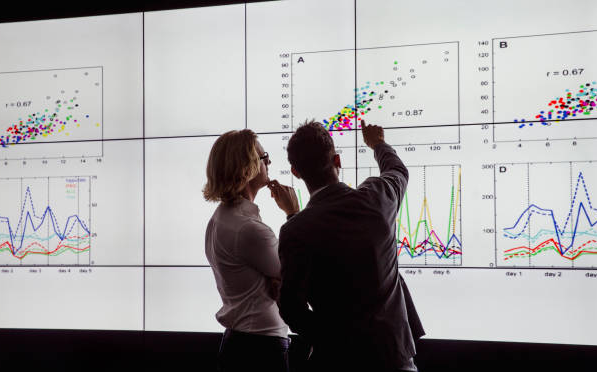Quantum technology is a groundbreaking field that has the potential to revolutionize various industries, including defense. With its remarkable computing power, quantum technology presents unprecedented opportunities for enhancing security, communication, sensing, and decision-making processes.

In this article, we will explore the remarkable applications of quantum technology in defense and how it unlocks unparalleled computing power. Let’s embark on a journey into the fascinating world of quantum technology.
Quantum Computing: Redefining Defense Capabilities
Quantum computing, an extraordinary application of quantum technology, is redefining defense capabilities by unlocking unparalleled computational power and security.
Quantum computers differ from conventional ones by employing quantum bits (qubits) that exist in multiple simultaneous states. This unique property, known as superposition, enables quantum computers to perform calculations at an exponential speed, revolutionizing defense operations.
Firstly, let’s explore how quantum computing enhances defense cryptography. Quantum computing has the potential to revolutionize cryptography, which is essential for secure communication and data protection in defense operations.
RSA and AES, conventional encryption techniques, depend on intricate math algorithms vulnerable to quantum computers and algorithms like Shor’s.
As a result, defense agencies are actively researching and developing post-quantum cryptography to safeguard sensitive information from potential quantum attacks.
In addition to cryptography, quantum computing empowers defense agencies with advanced optimization capabilities. Optimization algorithms are critical for defense resource allocation, decision-making processes, and logistical planning. Quantum computing offers the potential to solve complex optimization problems at an unprecedented speed.
Quantum algorithms, such as the Quantum Approximate Optimization Algorithm (QAOA) and Quantum Annealing, harness quantum superposition and entanglement to efficiently explore large solution spaces. Defense agencies can optimize troop deployment, logistics, and supply chains, resulting in efficient and effective defense operations, leveraging these algorithms.
Furthermore, quantum computing enables powerful simulations for defense scenarios. Simulation plays a vital role in understanding and predicting complex defense scenarios. Quantum simulation allows defense agencies to model and simulate quantum systems, enabling precise analysis and optimization of defense strategies.
Quantum simulations, leveraging quantum properties like superposition and entanglement, enhance defense decision-making and strategic outcomes significantly.
Quantum Encryption: Securing Communications in the Digital Age
Quantum encryption, powered by quantum technology, plays a pivotal role in securing communications in the digital age. In an era where data breaches and cyber threats are prevalent, quantum encryption offers an unparalleled level of security.
Firstly, traditional encryption methods, such as public-key cryptography, rely on complex mathematical algorithms that could potentially be broken by powerful quantum computers. Quantum encryption, on the other hand, leverages the principles of quantum mechanics to provide unbreakable codes.
Quantum key distribution (QKD) enables the secure exchange of cryptographic keys between two parties. Through the use of quantum principles like Heisenberg uncertainty, QKD ensures the detectability of any eavesdropping attempts in communication.
In addition, Quantum entanglement, a phenomenon where two or more qubits become correlated, is employed in QKD to establish a shared secret key. This key is then used for subsequent encryption and decryption processes.
Furthermore, quantum encryption provides future-proof security. As quantum computers continue to advance, they pose a threat to traditional encryption methods. Quantum computers can potentially break commonly used encryption algorithms, jeopardizing the confidentiality of sensitive information.
Quantum encryption, with its resistance to attacks from quantum computers, provides a future-proof solution. By implementing quantum encryption, defense agencies and organizations can safeguard their communications and data from quantum-based attacks, ensuring long-term security.
Quantum Sensing and Imaging: Enhancing Situational Awareness
Quantum sensing and imaging, made possible by infinitesimal technology, have the remarkable ability to enhance situational awareness in various fields, including defense. Quantum sensing and imaging techniques, based on quantum mechanics principles, enable the detection and identification of elusive objects and signals.
Let’s delve into the two key aspects of quantum sensing and imaging: quantum sensors and quantum-based imaging techniques. Quantum sensors, utilizing quantum properties such as entanglement and superposition, can detect and measure physical quantities with exceptional precision.
Firstly, these sensors enable highly sensitive detection of signals such as electromagnetic fields, temperature variations, and gravitational waves. Quantum sensors enhance situational awareness by providing real-time information, enabling defense personnel to make quick and informed decisions.
Quantum-based imaging techniques offer superior resolution and sensitivity for defense applications. Quantum radar, a quantum-enhanced imaging technique, utilizes quantum entanglement to surpass the limitations of traditional radar systems.
By entangling photons, quantum radar can achieve higher resolution, reduced noise, and improved target identification. This enables defense agencies to detect and track stealthy objects with increased accuracy, even in challenging environments.
Additionally, quantum-enhanced imaging systems, employing quantum-based algorithms and entangled photons, offer enhanced imaging capabilities, allowing for improved identification and analysis of objects.
Modeling Complex Defense Scenarios with Quantum Simulation
Quantum simulation, a powerful application of quantum innovation, plays a crucial role in modeling and analyzing complex defense scenarios. Quantum simulation, harnessing quantum mechanics principles, optimizes intricate defense operations and strategies with accurate representation.
Let’s delve into the remarkable capabilities of quantum simulation for modeling defense scenarios. Quantum simulation accurately models quantum systems, including particle behavior and molecular interactions, for defense agencies with remarkable precision.
By leveraging quantum properties such as superposition and entanglement, quantum simulations can explore a vast number of possible scenarios simultaneously. It offers valuable insights into complex defense system behavior, aiding agencies in strategy optimization, risk assessment, and informed decision-making.
Thus, Quantum simulation holds significant potential in optimizing defense operations. Quantum simulation optimizes defense processes like resource allocation, mission planning, and logistics, benefiting defense agencies in various ways.
Quantum simulation efficiently allocates troops and resources by simulating scenarios and variables, maximizing operational effectiveness while minimizing costs. Furthermore, it aids in developing and refining defense strategies, enabling agencies to anticipate and respond to changing circumstances.
Unraveling Encryption Challenges with Quantum Cryptanalysis
Quantum cryptanalysis, powered by quantum technology, presents both opportunities and challenges in unraveling encryption methods. As quantum computers continue to advance, their immense computational power poses a potential threat to traditional encryption algorithms widely used to protect sensitive information.
Let’s explore the impact of infinitesimal technology on cryptanalysis and the challenges it brings. Quantum computers, leveraging the principles of quantum mechanics, can perform certain mathematical operations exponentially faster than classical computers.
This includes algorithms like Shor’s algorithm, which has the potential to break widely used encryption algorithms such as RSA and ECC. This raises concerns about the security of data and communication in the face of quantum-based attacks.
Defense agencies are actively researching and developing quantum-resistant encryption methods. To address these challenges, defense agencies and researchers are actively working on post-quantum cryptography, which aims to develop encryption methods that are resistant to attacks from quantum computers.
These encryption algorithms are designed to withstand the computational power of quantum computers, ensuring the continued confidentiality and integrity of sensitive information.
Quantum innovation brings the need for a proactive approach to encryption security. The emergence of infinitesimal technology in cryptanalysis highlights the importance of staying ahead of the curve.
Defense agencies and organizations must proactively prepare for the post-quantum era by embracing quantum-resistant encryption methods. This involves collaboration between researchers, industry experts, and defense agencies to develop and implement robust encryption techniques that can withstand the power of quantum computers.
Unleashing AI Potential with Quantum Machine Learning
Quantum machine learning, powered by quantum technology, holds immense potential in unleashing the capabilities of artificial intelligence (AI). By combining the power of quantum computing with machine learning algorithms, quantum machine learning opens up new horizons for solving complex problems and processing vast amounts of data.
Let’s explore how infinitesimal technology revolutionizes machine learning in the field of AI. Quantum machine learning algorithms harness the unique properties of quantum systems, such as superposition and entanglement, to enhance computation and analysis.
These algorithms have the potential to process and analyze large datasets exponentially faster than classical machine learning algorithms. Quantum machine learning empowers AI systems to tackle complex tasks, such as pattern recognition, optimization, and anomaly detection, with unprecedented speed and accuracy.
Quantum machine learning offers advantages in diverse defense applications. In defense applications, quantum machine learning has the potential to significantly enhance threat recognition, anomaly detection, and decision-making processes.
By processing vast amounts of data and identifying subtle patterns, quantum machine learning algorithms can assist defense agencies in detecting emerging threats, optimizing resource allocation, and supporting strategic decision-making.
Quantum innovation drives innovation and advancement in the field of machine learning. The development of quantum machine learning algorithms requires close collaboration between experts in quantum computing, machine learning, and defense.
Moreover, this interdisciplinary approach ensures that the potential of infinitesimal technology is effectively harnessed to advance AI capabilities. As imperceptible technology continues to evolve, so will the opportunities and advancements in quantum machine learning, driving innovation in the field of AI.
Securing Information Exchange with Quantum Communication Networks
Quantum communication networks, powered by quantum technology, play a crucial role in securing information exchange in the digital age. In an era where data privacy is paramount, traditional communication networks face increasing vulnerabilities. Quantum communication networks leverage the principles of quantum mechanics to provide unbreakable security for transmitting sensitive information.
Let’s explore the key components of quantum communication networks and their significance in securing information exchange. Quantum communication networks utilize two essential elements: quantum key distribution (QKD) and quantum entanglement. QKD enables the secure exchange of cryptographic keys between communicating parties.
By leveraging quantum properties, such as the Heisenberg uncertainty principle, QKD ensures that any attempted eavesdropping or tampering would be immediately detectable. Quantum entanglement, on the other hand, allows for the transmission of information securely by establishing an unbreakable connection between quantum particles.
Additionally, Quantum communication networks offer unprecedented security against eavesdropping and hacking. Unlike traditional communication networks, which are susceptible to hacking and data breaches, quantum communication networks provide an unprecedented level of security.
The unique properties of quantum particles make it virtually impossible for an eavesdropper to intercept or tamper with the information being transmitted. This ensures the integrity and confidentiality of sensitive data, making quantum communication networks a vital tool for defense agencies and organizations dealing with classified information.
Quantum innovation drives advancements in secure information exchange. As imperceptible technology continues to evolve, so does the potential for quantum communication networks. Ongoing research and development aim to improve the scalability and practicality of quantum communication systems, making them more accessible for widespread implementation.
Moreover, the use of quantum communication networks holds promise for secure communication across various sectors, including defense, finance, and government, safeguarding sensitive information in an increasingly interconnected world.
Conclusion: Embracing the Quantum Revolution in Defense
In conclusion, the integration of atomic technology in defense and military applications unlocks unprecedented computing power and security. Quantum technology, with its remarkable capabilities in quantum computing, encryption, sensing, simulation, and machine learning, revolutionizes the way defense operations are conducted.
Leveraging quantum principles, defense agencies improve situational awareness, secure communications, optimize resource allocation, and make precise, efficient decisions.
Furthermore, With quantum advancements progressing, defense organizations must lead in R&D, collaborate with experts, and invest in infinitesimal technology initiatives. The potential of quantum technology in defense is vast, and by embracing its capabilities, we can shape the future of military technology.
Your feedback is valuable to us. Please share your thoughts in the comments and spread the word by sharing this post with others who are interested in the intersection of quantum technology and defense.








